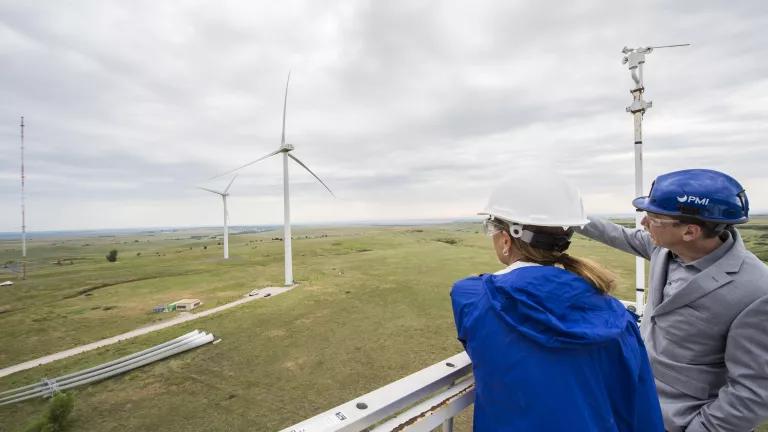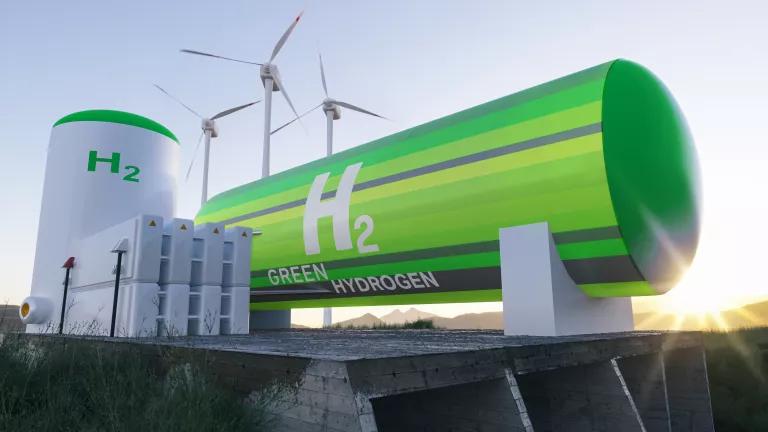CO, Xcel Poised to Lead a Rapid Clean Energy Transition
This is a huge step forward, and one Coloradans can be proud of.
NRDC and our intervention partner, the Sierra Club, decided to join the new proposed settlement with Xcel on its resource plan. We had opposed the previous settlement and I testified against it. This spring, parties to the case came back to the negotiating table and ultimately most parties, including NRDC and Sierra Club, came to agreement. This agreement is much better for Coloradans, the climate and Xcel’s customers. We hope the Commission will move to quickly approve it.
The revised settlement would accelerate the dates for ending the use of coal at Comanche 3 and Pawnee, and reduce the likelihood of new gas being acquired. Simply from accelerating the Comanche 3 retirement date by 3+ years, the new settlement would reduce CO2 emissions by 3.5 million tons more than the original settlement, and reduce costs by $53 million ($183 million including the social cost of carbon!). Combined, the elements in the settlement put Xcel on track to achieve approximately 90% carbon emissions reductions by 2031, or sooner (from a 2005 baseline).
The new settlement includes the same worker and community transition provisions for Pueblo that the original settlement (starting sooner!), including tax payments to Pueblo through 2040. To recap, below is a summary of the things in the revised settlement that were not included in the original settlement- and brought us to support it.
1. Earlier Comanche 3 retirement date: The settlement requires the Comanche 3 coal unit to retire no later than January 1, 2031 (as opposed to the earlier proposal to close by December 31, 2034), with a final retirement date to be determined in a 2024 Just Transition resource plan.
2. Commission review of cost recovery and replacement plan for Comanche 3: The original settlement guaranteed Xcel over $600 million in cost recovery for closing Comanche 3 ahead of its earlier depreciation schedule, which extended to 2069. The new agreement would require PUC review of this cost recovery by specifying that Xcel can recover only those costs that the PUC determines to be prudent. Under the revised settlement, the PUC will also review the reasonableness and cost of proposed utility ownership of the resources that replace Comanche 3 to ensure that the overall portfolio of new resources is cost-effective and includes emissions reduction and just transition benefits.
3. Earlier end to the use of coal at Pawnee: The Company will file an application to convert Pawnee from a baseload coal plant to a gas peaking plant within 90 days of the Phase 1 decision, which will result in ending the burning of coal at Pawnee as soon as possible–perhaps as soon as 2024.
4. Provisions to reduce the likelihood of building new gas plants:
- Shorter assumed useful life for new gas plants: The modified settlement shortens the useful life that Xcel will use for modeling gas plants in Phase 2 from 40 years to 25 years, meaning they would plan to burn gas for a shorter period of time that better reflects the urgent need to transition off of fossil fuels- and the cost of building new gas in light of the urgent need to transition to clean energy. By comparison, Tri-State will be modeling a 20-year useful life for gas in its ERP.
- In phase 2 resource solicitation this year, Xcel will not acquire new resources for 2029 and 2030- when their modeling showed the possibility of significant new gas acquisition- and will instead defer acquisition of 2029 and 2030 resources to the next solicitation, which will start in 2024. This ensures that this year’s solicitation will not result in acquiring new gas plants for 2029 and 2030 and gives renewable and storage options two more years to come down in cost and even better compete with gas.
- The Company will update its study for battery storage with newer information and better assumptions, to ensure that in Phase 2 there is an accurate comparison between battery storage and gas peaking plants.
The settlement will lead to about 90% reductions in Xcel’s emissions in Colorado, once fully implemented, and cost less than continuing to rely on fossil fuels. It also provides meaningful transition assistance to communities that have relied on coal. This is a huge step forward, and one Coloradans can be proud of. Every utility and utility commission in the country (and congress!) should take note: This is the way forward.



